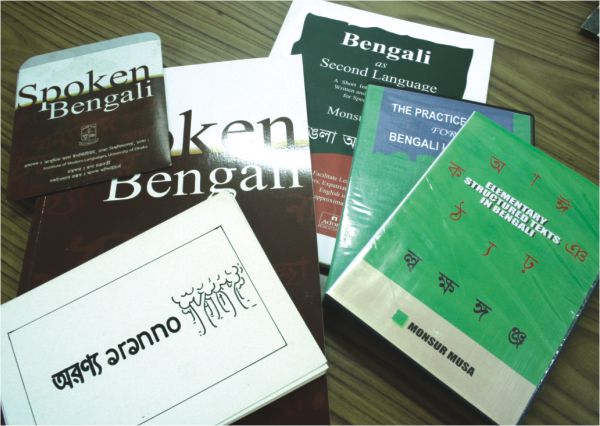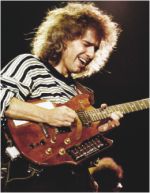Language
Behind The Names
Giang Tran

Photo: Kazi Tahsin Agaz Apurbo
- Bhaiya, jaben? Mohammad Ali Road jaben?
- Cholen
- Koto bhaiya?
I have been living in Bangladesh for nearly three years but I always called rickshaw pullers 'bhaiya' (brother), whether he is a young man or an old man. Since my Bangla shikkhok (teacher), two years ago, taught me that I should call them 'bhaiya,' I did so. 'Them' here means the rickshaw pullers. No one taught me anything else until a month ago when I realised that Zyma, my colleague, calls them 'mama.'
What does 'mama' mean? I call my host mother 'mama.' My apa calls her mother 'ma'. In Vietnam, some people also call their mothers 'ma'. However the tone of these words is slightly different if you listen carefully.
Among the Vietnamese friends in my university, I am proud of myself to be the good Bangla learner. In Chittagong, I am the road and bargain expert. My friends usually ask me to go with them as the protector. I don't know how much I can protect them but at least I make them feel safe since I can speak a little Bangla.
Learning Bangla is a lot of fun. We all attended the Bangla class for about six months, but it was too complicated for a South East Asian girl. We have completely different dialects and scripts. The only reason we went to class was to make our shikkhok happy. She was very enthusiastic to teach us; therefore we didn't want to upset her. We were rarely absent in the class, but our Bangla was bad compared to the Bhutanese students or Nepali students.
And the fact is that I always mixed up between “chhilo, chhilam, chhiley'. I had some notes and I studied them many times but the note did not work for me. In my notes, there were several columns of grammar, tense, future tense 'korbo,' past tense 'korchhilam,' then 'kori' for the present tense. With other words, other ways of pronunciation would come. It was complicated in the way that there were a hundred long words that I could never learn by heart. I ended it by locking the notes in my cabinet. I decided to give up. My Bangla was good enough for buying and travelling.
But it was embarrassing to call an old man 'bhaiya.' It is like I call my dad 'brother'. I have been travelling by rickshaw and calling them 'bhaiya' for the past three years. This showed the irresponsibility in me as a Bangla learner. In Vietnam, respecting a language means respecting a culture. My mother taught me as a young Vietnamese girl that the words I say is as important as the way I think about the person.
In Bangladesh, to show respect to the elders, there are different names to call them. For elder brothers is 'bhaiya,' for elder sisters is 'apu' and for the middle aged and above men and women are 'mama' and 'khala'. Then for other family members, depending on father's side or mother's side, there are 'fufu, chacha, pishi, kaka, nana, nani, dada, dadi, matul dada, matul didi, thakur dadu, thakur ma' and so on. It would take me a day learning these words.
Once, I even got angry with my friend because everyday she reminded me to call her 'apu' everytime we met. And I asked, “What's wrong if I call you 'apu' or not? We are still friends. It doesn't mean that I don't respect you if I don't call you 'apu.'” Since then, she never reminds me again but I feel sorry for that. The word 'apu' means a lot to her.
Another time I asked a colleague “Shall I call you apu?” She was very happy about it. In my office, people call each other as 'bhai' and 'apu' and I realised that people are happy when they are called so. It is the way people show respect to each other and to help us to communicate better. This is the beauty of Bangla language.
(The author is a Vietnamese student working as an intern at the Daily Star.)
DID YOU KNOW?
Pat Metheny
 |
|
Jazz Guitarist, Patrick Bruce 'Pat' Metheny was born on August 12, 1954 (today he turns 58!). He was raised in Lee's Summit, Missouri, a suburb southeast of Kansas City. Following his graduation from Lee's Summit High School, he briefly attended the University of Miami in Coral Gables, Florida in 1972, where he was quickly offered a teaching position. He then moved to Boston to take a teaching assistantship at the Berklee College of Music with jazz vibraphonist, Gary Burton. He first made his name as a teenage prodigy under the wing of Burton. In 1974, he made his recording debut on two sessions for pianist, Paul Bley's and Carol Goss' Improvising Artists label, along with fretless electric bassist, Jaco Pastorius. Metheny entered the wider jazz scene in 1975 when he joined Gary Burton's band, where he played alongside resident jazz guitarist, Mick Goodrick. Metheny's next recording, 1977's Watercolors, was the first to feature pianist Lyle Mays, Metheny's most frequent collaborator. Metheny's next album formalized his partnership with Mays and began the Pat Metheny Group, featuring several songs they co-wrote; the album was released as the eponymous Pat Metheny Group on West German musician/producer Manfred Eicher's ECM record label. His collaboration with other great musicians also contains works with Milton Nascimento, Santana, Dominic Miller, Michael Brecker, Tilok Gurtu etc. Pat Metheny has been touring for more than 30 years, playing between 120 and 240 concerts a year.
Information Source: Internet.
|
|
|
